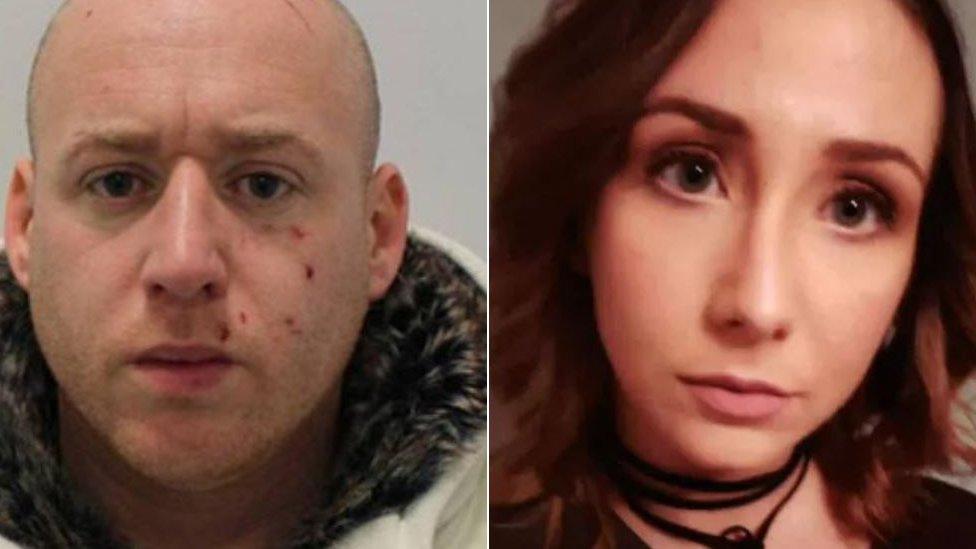Met Police murder detectives 'face wall of silence'
- Published
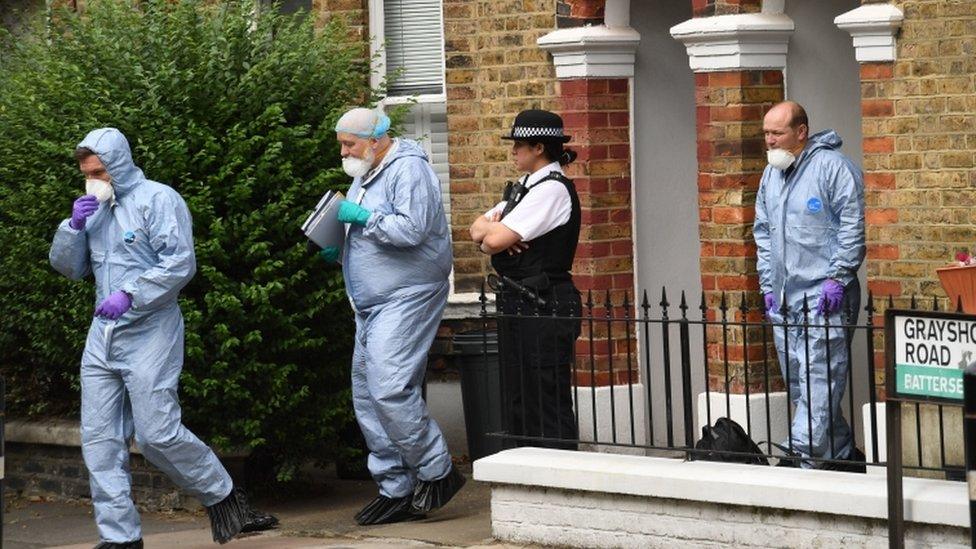
About 1,400 homicides have been investigated by the Met in London since 2008
Murder detectives in London say the "heartbreak" of unsolved cases is being made worse by a "wall of silence".
The Met has solved nearly 90% of homicide cases in the past decade but Det Ch Insp Noel McHugh says fears about "snitching" are a challenge.
He said those who share information with police "are not a grass, they are a public champion."
The aunt of Bjorn Brown, whose death is unsolved, said the wait for justice had prolonged her pain.
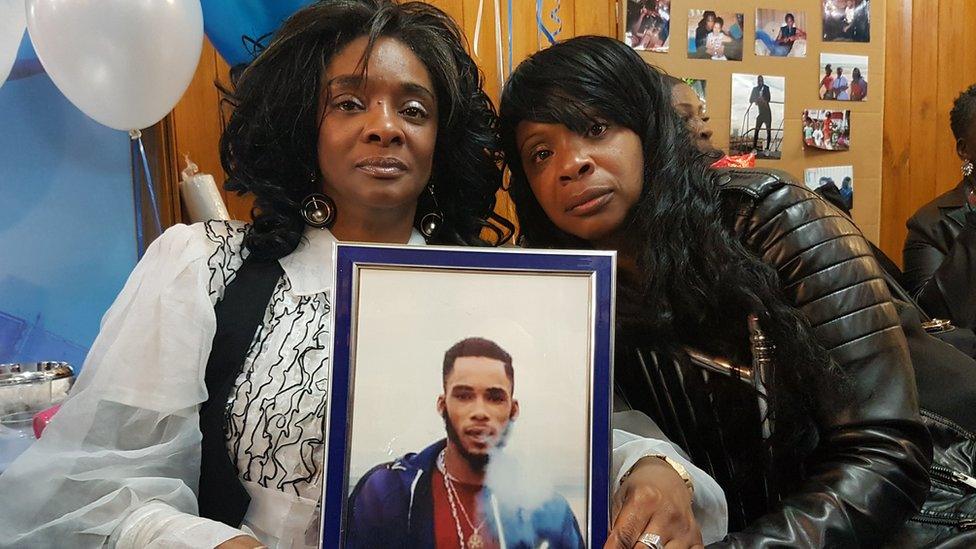
Sandi Bogle (right) says silence around the death of her nephew Bjorn Brown had made the pain worse
Commissioner Cressida Dick has previously said detectives were operating in a "very challenging" environment and were met with a "wall of silence" in some cases.
The Met classes homicides as "detected" when a suspect is charged or following an inquest into the death of a suspect who would have been charged.

Det Ch Insp McHugh said there were a higher number of unsolved homicides in 2018 and 2017 than other recent years because "crimes don't necessarily get detected in the year they happen".
He said other challenges facing the homicide teams included extracting data from multiple mobile phones.
"Every mobile phone is effectively a computer. There is a massive amount of work for investigators to work through," Mr McHugh said.
"It might take two or three days to totally understand what a device was doing on that particular day.
"Recently, we had an investigation where we recovered 50 phones - it is enormous."
Det Ch Insp McHugh said he was keen to "dismantle the snitching culture".
"It is absolutely heartbreaking for the officers and the families, especially when there are people out there in the know, holding back information and hiding behind a wall of silence," he said.
"They are not a snitch, they are not a grass, they are a public champion."
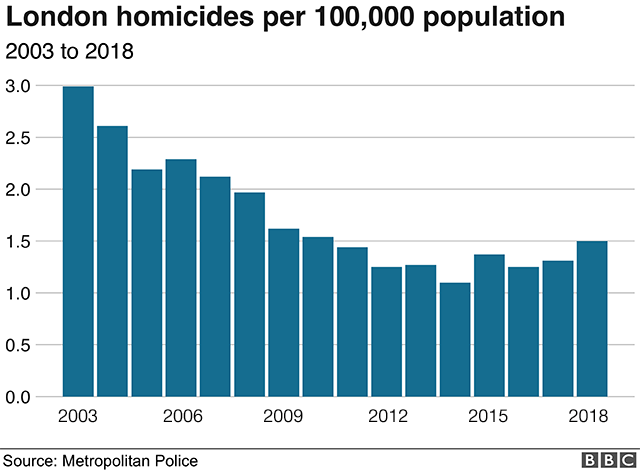
The Met said it had a "robust and comprehensive" review process for all homicide investigations.
If a case was unsolved after 28 days, a homicide investigation would be independently reviewed by specialist officers from the Met's Serious Crime Review Group.

Analysis
By Danny Shaw, BBC Home Affairs correspondent
The clear-up rate for cases of murder and manslaughter has always been high - around 90% or above, with dedicated teams and substantial police resources rightly devoted to investigations.
But the figures for the Met make worrying reading. Between 2008 and 2015 detections remained stable, with only 5 to 10 % of cases unsolved. Since then, however, the proportion of un-detected killings has risen from 13% in 2016 to 26% in 2017 and 2018.
Although some cases will be classed as "detected" in the months to come as investigations develop and inquests conclude, the increase does suggest that murder is becoming harder to solve.
As Noel McHugh suggests, it may be partly due to the volume of digital material now available and the reluctance of witnesses to come forward, particularly in street-based or gang-related crimes.
But a shortage of detectives and forensic science provision, highlighted in numerous reports by inspectors and parliamentary committees, together with increased demands on police more generally, are also likely to be factors.

Det Ch Supt Richard Wood explained unsolved murder cases were never closed and more recent cases were likely to be currently classed as "undetected" because of the normal length of a homicide investigation.
He said: "We prioritise resources to investigate homicides and work closely with the CPS to bring offenders to justice and support families at the most difficult of times."
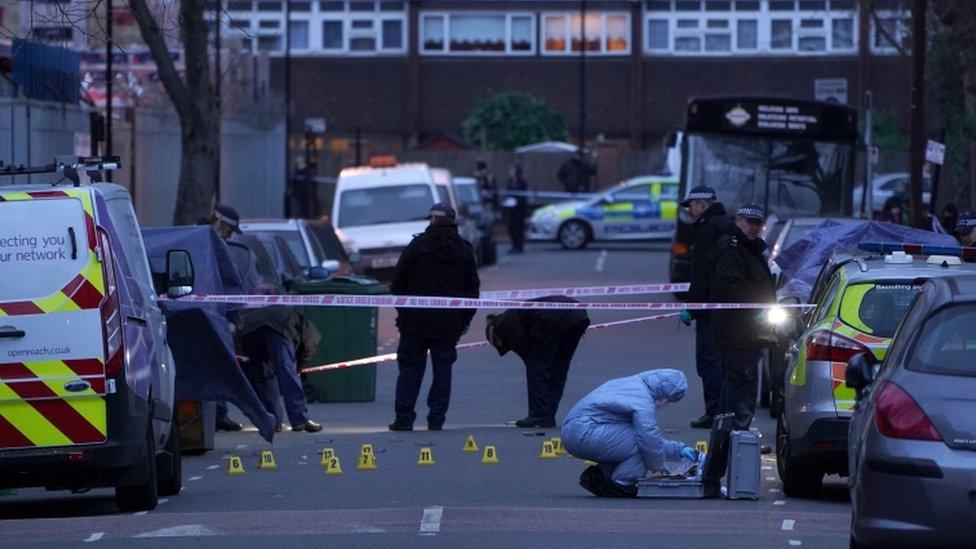
The Met Police defines a "detected" homicide case as one that resulted in a charge
Cases "put on hold" are reviewed every two years by an independent panel - chaired by a Commander - that aims to source any new information.
One of the cases unsolved is that of Bjorn Brown, who was stabbed to death in Croydon in March 2017.
Despite repeated CCTV appeals and a £20,000 reward for information - nobody has been charged with the 23-year-old's murder.
His aunt Sandi Bogle - who featured in Channel 4's Gogglebox - said the so-called "wall of silence" had prolonged the pain of her family's loss and search for answers.
"It is sad that it has come to the point where money has to be offered for information," she said. "It really makes you think people don't care about human life.
"Someone out there knows what has happened and I can't blame the police when there are friends and family who hide behind this wall of silence.
"It is painful, every event like birthdays, Christmas or Easter which go by, it just gets harder knowing Bjorn isn't there.
"It's never going to be too late to make that phone call and share whatever information you know so our family can get justice."
Det Ch Supt Wood expressed his sympathy to families such as Mr Brown's - but said cold cases often became "lengthy and complicated".
He added: "There is a huge amount of work taking place on unsolved murders.
"There are between 15 and 20 cases subject to a full cold case review at any one time.
"Behind every unsolved murder there is a family looking for answers.
"In some cases, they do take years to come to conclusion."
- Published4 April 2017
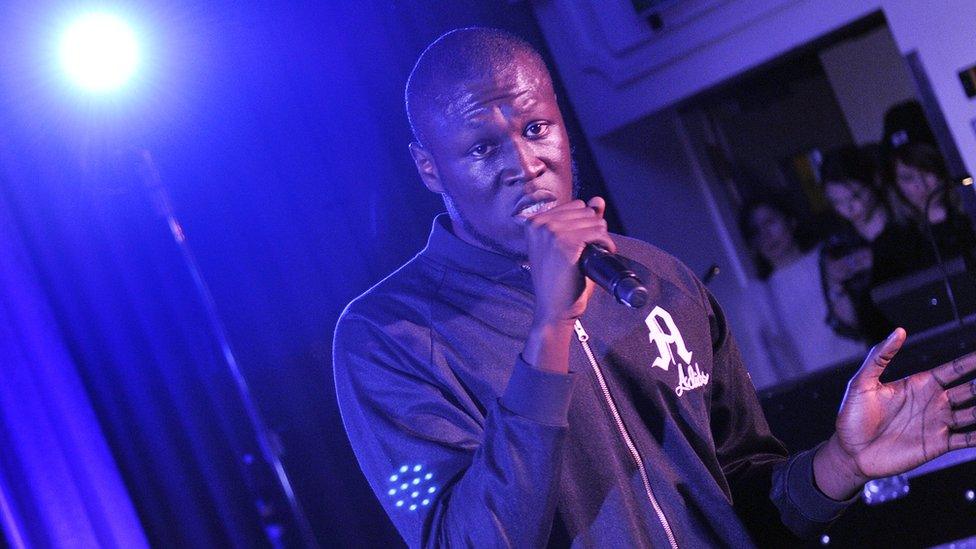
- Published13 April 2018
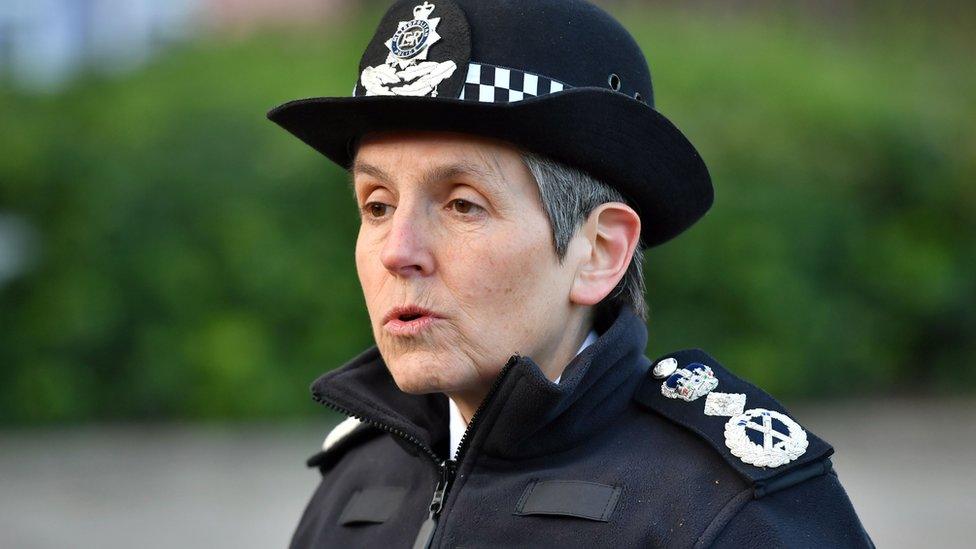
- Published6 February 2019
